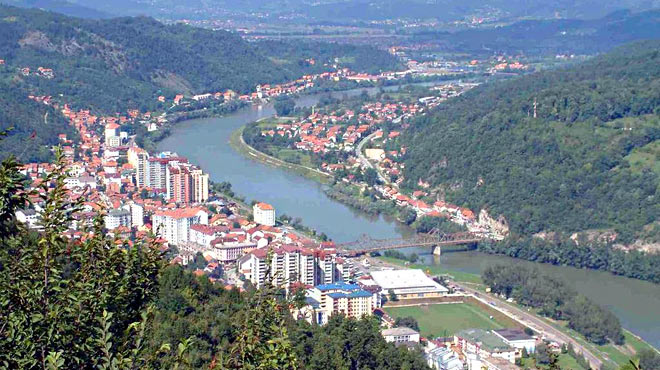
09.06.2015.
Bosniak Survivors Mark Zvornik Massacres Anniversary
Twenty-three years after the killings of hundreds of men by Bosnian Serb forces and paramilitaries around the town of Zvornik, only a handful of people have been convicted of war crimes.
Victims’ associations marked the 23rd anniversary on Monday of the killing of 438 men in Zvornik in north-eastern Bosnia and Herzegovina by calling for more of the perpetrators to be brought to justice.
On June 8, 1992, more than 190 men were killed at Gero’s slaughterhouse and 88 at a school in Drinjaca and 160 at a school in Karakaj.
“Zvornik was one of the first areas in Bosnia where we had mass crimes [during the 1992-95 war]. As the families of those who were killed, we wanted these crimes to be prosecuted,” Ahmet Grahic, president of the Association of Families of Prisoners and Missing Persons in Zvornik, told BIRN.
“We had some trials in Belgrade, and there we had two or three trials for Zvornik, but those were for crimes in [detention] camps, but other crimes, mass killings, we had none for those,” he said.
The court in Belgrade has sentenced seven people in three cases to total of 68 years for wartime crimes in Zvornik. A fourth case is ongoing at Belgrade’s special court against six people for war crimes in the village of Skocic, near Zvornik. There have also been several trials at the Bosnian state court but the defendants have been ordinary soldiers or policemen for individual crimes, not their commanders.
“We are especially unhappy with the prosecution of crimes in Bosnia and Herzegovina. The crimes in Zvornik are a stain on human dignity, with the number of mass graves and people killed, and our state prosecution is doing very little,” said Grahic.
Boris Grubesic, the spokesperson for the Bosnian state prosecution, said that there are currently several investigations into the crimes which took place in Zvornik and the surrounding areas.
“We are actively working on these investigations and we are especially pleased with the cooperation we are getting from our colleagues in Serbia, considering that the some cases for Zvornik have been prosecuted in Serbia,” Grubesic said.
The mass killings in May and June 1992, including those at Gero’s slaughterhouse and the schools in Drinjaca and Karakaj, are part of the indictment against former Bosnian Serb political leader Radovan Karadzic at the Hague Tribunal.
According to the charges against Karadzic, the crimes in Zvornik in 1992 reached the scale of genocide. During the trial, Karadzic tried to prove that paramilitaries, rather than the Bosnian Serb Army, were to blame for the killings.
Grahic said Karadzic should reveal the truth about the missing bodies of people who were killed around Zvornik 23 years ago.
“If it were up to me, I would just ask Karadzic to tell victims’ families where the remains of those who were killed are. We are still looking for more than 400 people missing since the war,” he said.















